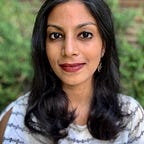On grief in America
Dear ____________
These days, everyone is talking about violence. Since the shootings in Orlando, I’ve been silently watching the world around me descent into madness. Attacks in Bangladesh. Bombs in Baghdad, an attack in Kabul, police brutality, shootings in Munich and Dallas. Two months ago, I went to Dupont to watch an inter-faith congregation address the public.
“We must come together to challenge how the queer and brown bodies of our brothers and sisters in Orlando are seen…,” a local pastor boomed into the mic, “we must recognize the role that our own churches have played in perpetuating homophobia.”
I watched the crowd cheer; a few clapped, some nodded silently. Every one observed, deep in thought. I stood for a while, holding a candle, watching everyone, then left. I had gone to the gathering hoping to show solidarity but also to allay my own anxieties about gun violence and discrimination in the States. I had (naively) assumed that in showing up, by being physically present in a community, that I’d somehow be filled with that humane energy that you feel among people.
But I felt nothing.
And for long after, I thought about this.
In many ways, America reminds me of India. It seems to me a deeply wounded society, struggling to heal yet unwilling to face its own undoing. But I’ve noticed that there’s something unique about grieving in America: a steadfast belief that loss is visceral, that one must shut off all doors to one’s body, holding all emotions in, until there’s a right time for release.
The first time I truly felt loss was when a boy in my school died of an Asthma attack. Or was it Spondylitis? I don’t quite remember. What I remember was that everyone liked him. He was a popular kid; played sports and had a lot of friends. Moreover, he was new to our school. This is rare in boarding schools (like the one I attended). So when he passed away, no one was prepared. It happened on a rainy, monsoon night. There was no power and no one could find him. Rainwater filled the gutters and overflowed, leaving us ankle-deep in mucky brown mulch. It was freezing cold and the rain beat down furiously. For two or three hours, the whole school — boys and girls, teachers, administration staff— looked for him. Finally, we all went to our residences and waited. We later learned that the boys found him slouched over the toilet. He was rushed to hospital in the neighbouring town but it was already too late.
The weird thing is I’d never talked to him. I never knew what he liked, what he didn’t like or what he loved to eat. I didn’t know those intimate details. Yet, when I went to bed that night, I felt this strange, weird vacuum in my chest.
That whole week I watched it all; girls crying, boys swearing out loud against the school, staff talking in hushed whispers. For a week, the kids sang hymns in his memory during assembly, consoled his girlfriend and prayed for his family. Slowly, everyone ran out of steam. There was nothing left: no more tears, sweat or anger. I remember feeling light, as if a weight had been lifted.
In the US, there is a kind of ‘rightness’ about grief. When we discussed Orlando at the office, my American friends often used words like “dazed” or “heartbreaking” to describe how they were feeling about the situation or said things like “I am so troubled.”, “How can we confront this culture of violence?”.
The activists I knew were vocal and loud in their criticisms but diplomatic about their opinions on what’s right and wrong.
I observed that it isn’t okay to simply burst into tears, swear out loud or let the tears flow free. There’s a public sensibility that all of these expressions will be deemed political. So people hold themselves together and only say the ‘right’ things. If you read the news today, you’d see the word “political correctness” thrown around a lot. Certainly, I’ve noticed the strain of political correctness in the work I do. But I think that there’s more to this rightness than political correctness, there’s a fear that if one fully partakes in the human experience, then one lets one’s guard down.
As you know, vulnerability isn’t seen as a virtue in these times.
More soon,
M.
